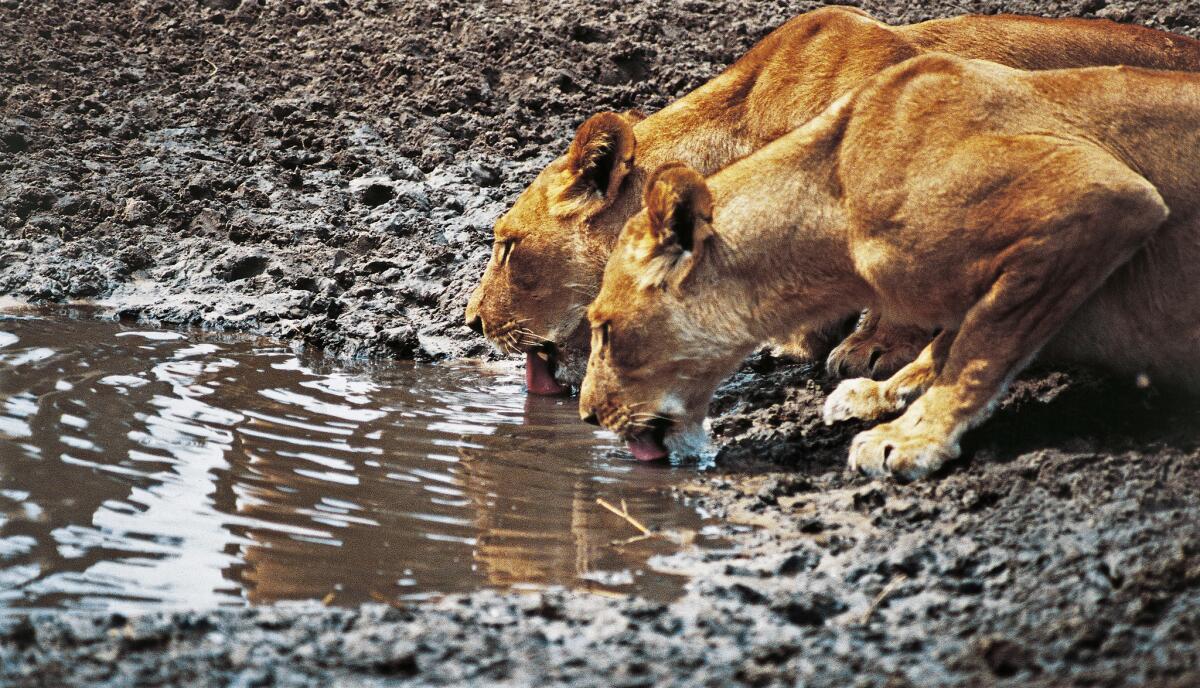How lions’ roars are being silenced in Africa

Lionesses drinking at a pond in the Savuti marsh area in Botswana.
- Share via
Who knew that the icon of Africa was acutely endangered?
According to the International Union for Conservation of Nature, there are now estimated to be just 25,000 to 30,000 lions on the entire continent, down from 75,000 in 1980.
The reasons for the loss are many-faceted. Maasai warriors once proved their manhood by spearing a lion to death; the tradition is still practiced but is waning as education spreads. However, if a lion nears a human settlement — and as population grows, wildlife habitat disappears at an alarming rate — locals will typically kill the lion.
In Zimbabwe, South Africa, Zambia and Namibia, hunting lions is permitted in some private game reserves, many of which raise lions specifically to be killed by high-paying hunters (average cost is about $55,000). This claims more than 500 lions annually. Because tigers are nearly extinct, traders who used to traffic in that animal’s parts are increasingly turning to selling lion paws, claws, teeth, bones, meat and skins.
Most of Africa’s remaining lions are concentrated in parks and reserves in Botswana, Kenya, South Africa, Tanzania, Zambia and Zimbabwe. I’ve seen them in all six countries, although recent sightings have been rarer. One sure way to see them is to visit Tanzania’s Serengeti during the wildebeest migration (July-October), when lions gather to prey on the weak and young.
The Maasai Mara National Reserve in Kenya is another place, although it can get crowded during peak season (summer and December). One of my favorite spots is Elsa’s Kopje in Kenya’s Meru National Park, the site of George Adamson’s original camp in “Born Free.” Botswana has done an excellent job of conservation, and I’ve seen some spectacular lion prides in its Okavango Delta.
When I asked Richard Bonham, co-founder of Big Life, a nonprofit conservation effort in Kenya, if he thought any grandchildren I might have would see elephants, rhinos and lions only in photographs, his blue eyes looked fierce as he said, “Well, that’s entirely up to us.”
MORE:
As Africa’s animals are killed off, protectors (and tourists) turn anger into action
The hidden consequences of hunting Africa’s lions
African rhinos face extinction by end of decade because of poaching for horns
More to Read
Sign up for The Wild
We’ll help you find the best places to hike, bike and run, as well as the perfect silent spots for meditation and yoga.
You may occasionally receive promotional content from the Los Angeles Times.






